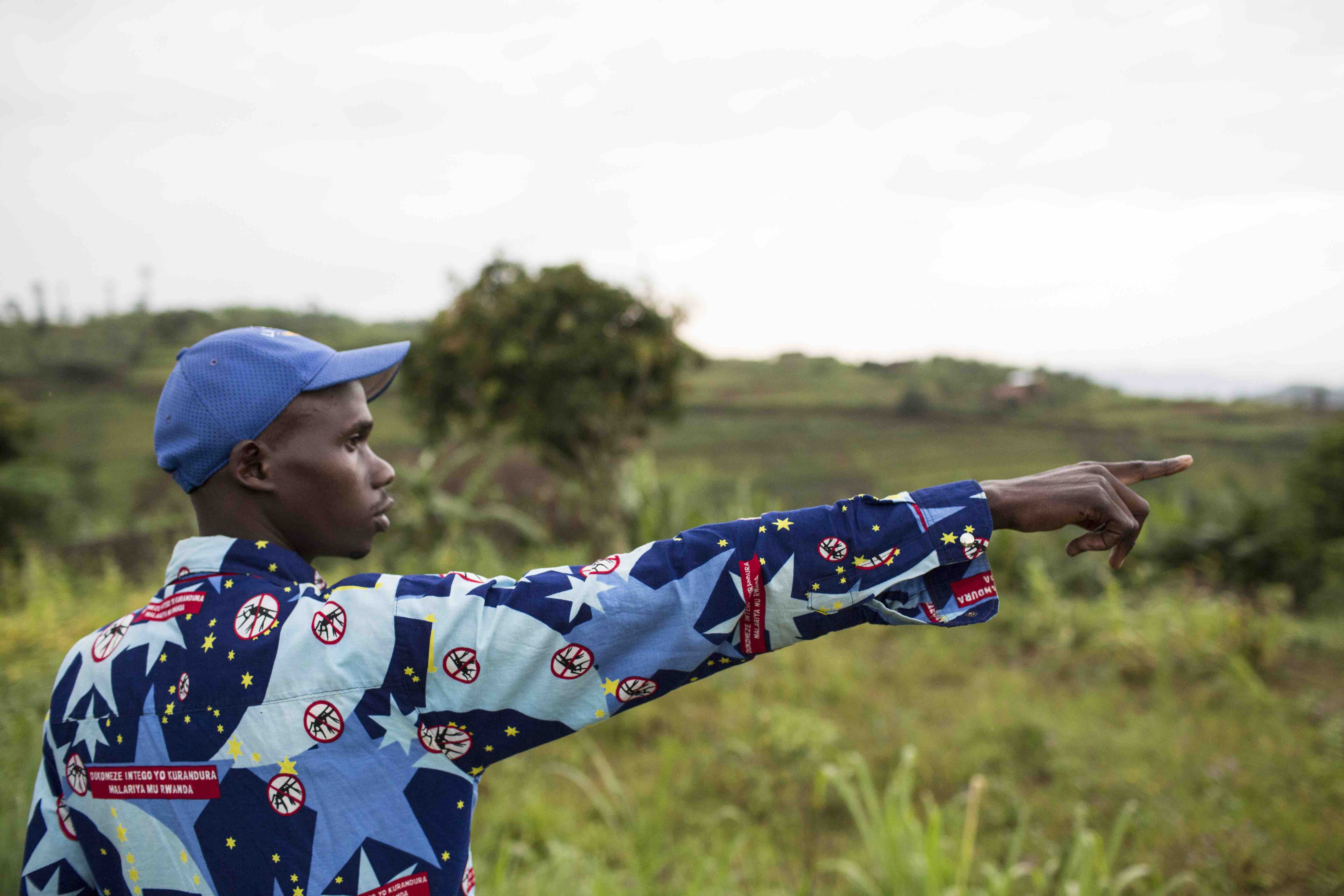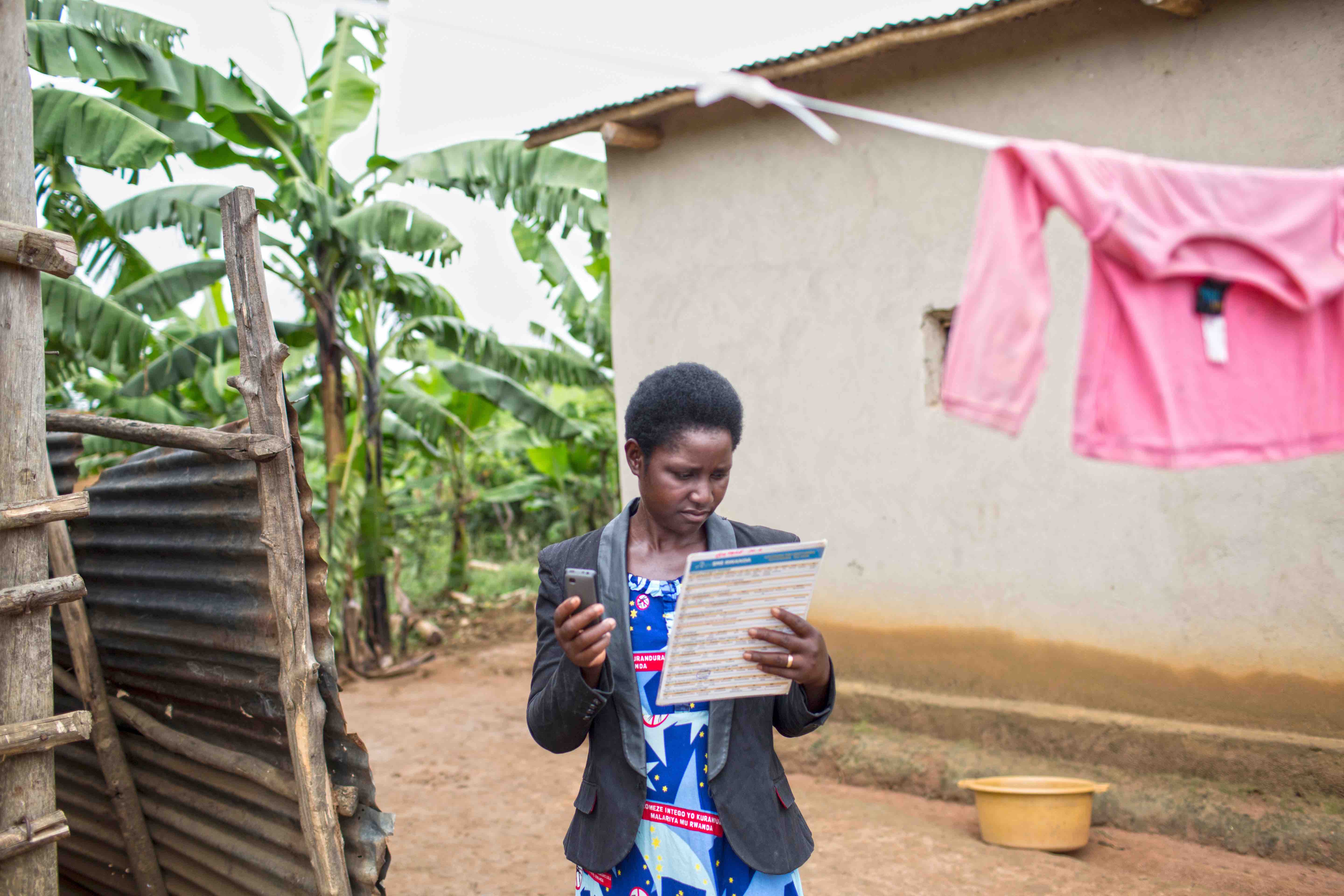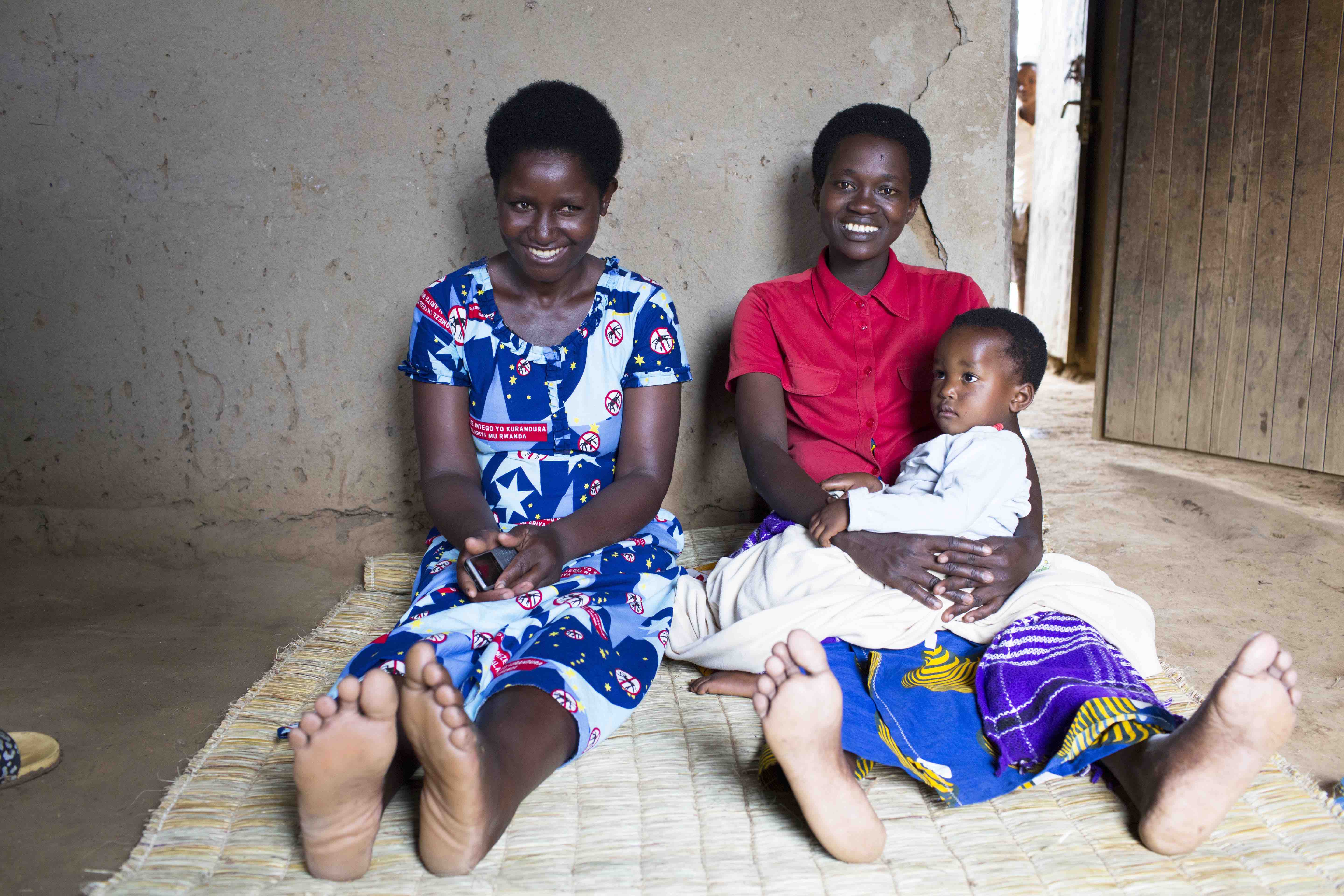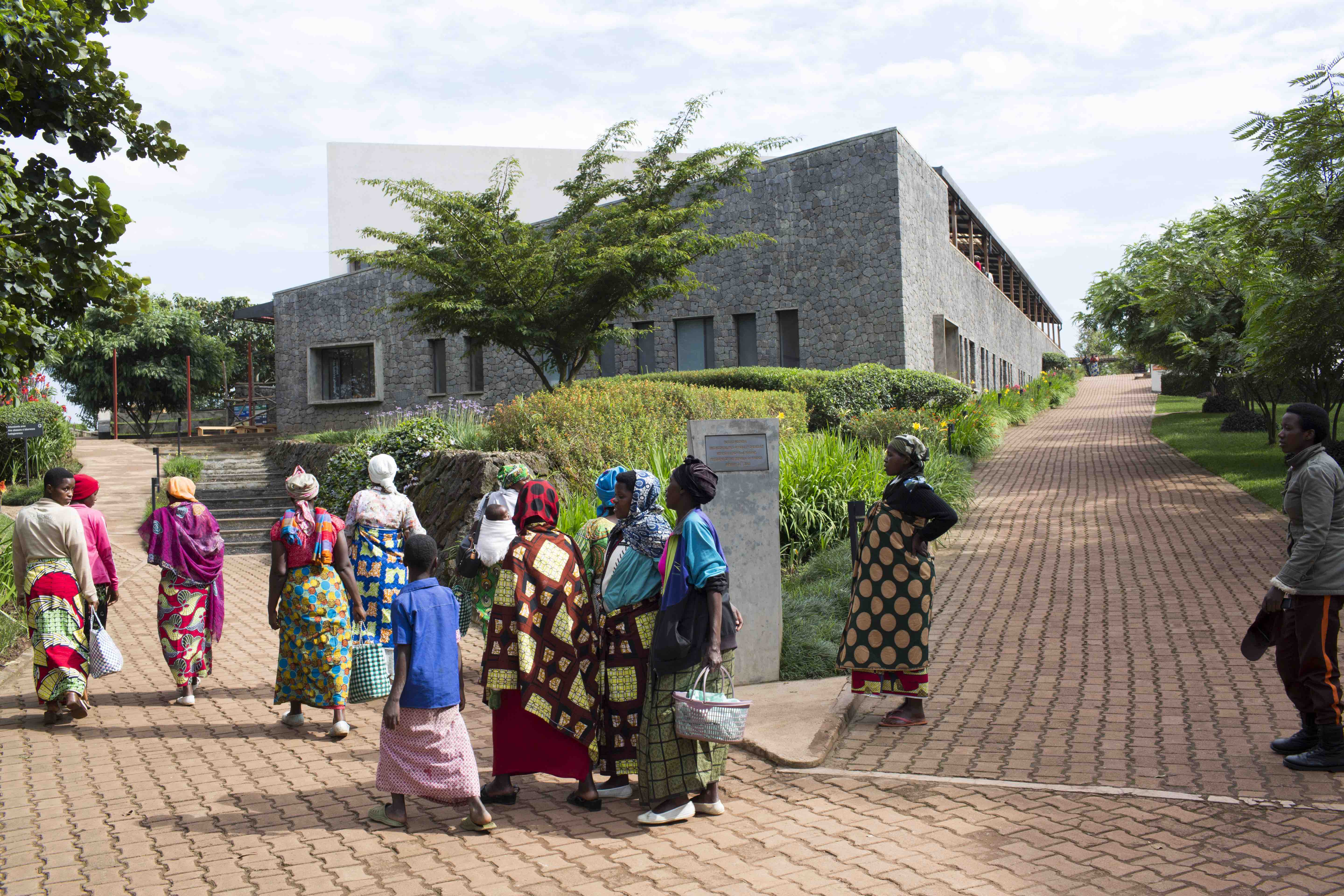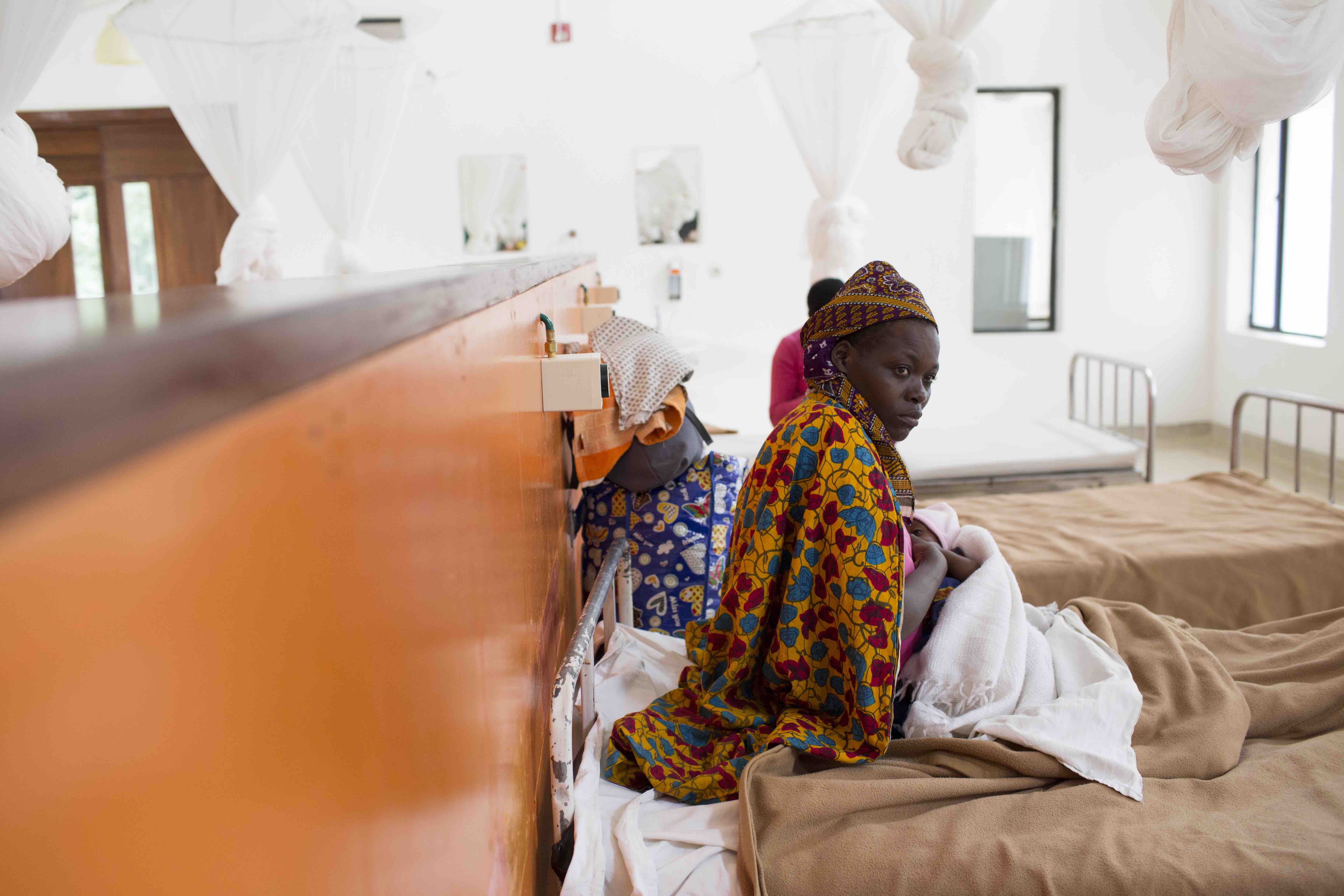How did the world’s poorest country double life expectancy in just 20 years?
- Text by Alex King
- Photography by Tom Maguire

Amid the patchwork of small landholdings that cover Rwanda’s famed rolling hills, life takes on its own pace. Outside the village of Mushishivo, Theoniste Rubarura is making his rounds, walking from hut to hut to check in on his patients. He’s wearing the distinctive anti-mosquito uniform of Community Health Workers, the backbone of Rwanda’s health system in rural areas.
Rwanda’s 1994 genocide, when a million people were killed in a hundred days, still casts a shadow over the country. When the Hutu majority tried to wipe out the Tutsi minority, the violence unleashed left Rwanda in ruins and it became the poorest country in the world. Rape was used as a weapon of war, which contributed to an AIDS epidemic which posed major challenges as the country tried to rebuild. But over the intervening decades Rwanda has risen like a phoenix from the flames, achieving the greatest progress on the United Nation’s Human Development Index.
The health system has become a shining emblem of its recovery, achieving near universal coverage and treatment rates for diseases such as tuberculosis and AIDS that put wealthy countries of the West to shame – and all this in a nation that, despite huge progress, remains one of the poorest in the world. Fifteen years ago, the AIDS epidemic was a major destabiliser, but when the international community stepped up and released huge funds through the Global Fund and PEPFAR, Rwanda used the help to build infrastructure and expertise – allowing it to double life expectancy since 1994.
Theoniste was elected by his village to become one of 45,000 volunteers trained to provide essential health services, such as Directly Observed Treatment (DOT) for TB and HIV, malaria and diarrhoea treatment, and maternal and newborn care. “I wanted to save lives in the village,” he explains. His patients are covered by the Mutuelles de Sante health insurance scheme, which has helped achieve near-universal coverage and includes the poorest section of Rwanda’s population free of charge.
Theoniste takes two hours out of his daily work as a farmer to attend to the health of his community. First on his list is Ernestine Ituze, 19, who he diagnosed with TB six months ago. “When I found out, I was worried because it’s a dreadful disease,” she explains, from the doorstep of her family’s hut. During her illness, Theoniste visited her daily to ensure she took her medication but now returns once a week to monitor her family’s health, hygiene and important preventative measures like the use of mosquito nets. Ernestine’s recovery is just one many positive memories he’s experienced as a CHW, Theoniste explains, although helping ensure mothers deliver safely gives him the most pride.
At this level, Rwanda’s health network is built on grassroots connection between villagers, but each Community Health Worker is aided by technology, such as Rapid SMS, a low-tech, open-source system for maternal care that runs through text messages and has helped Rwanda reduce child mortality from 300 per 1,000 births down in 1994 to 42 today.
The Partners in Health-supported Butaro hospital, constructed from volcanic rock near the Congolese border, gives an idea of the future for Rwanda’s health system – and the huge obstacles that continue to stand in the way of progress. As it frees itself from diseases associated with extreme poverty, such as AIDS, TB and Malaria, Rwanda is building the capacity to face new challenges, more common in affluent societies, like cancer care, which is being led by Butaro.
Back in the capital, Minister of Health Dr. Agnes Binagwaho speaks frankly about the challenges posed by falling funding from the government and foreign donors over coming years. A trained paediatrician, she’s become a minor celebrity in development circles for the huge transformation she’s overseen in Rwanda, but is under no illusions about the struggle that lies in store.
“[We have been able to progress so far since the genocide] because of good governance, inclusive policies that leave nobody out and making sure people get a fair share of what resources we have,” Dr Agnes explains. “The challenge for my generation is to create the environment that will create greater opportunities for the next generation.”
To maintain its impressive progress, Rwanda will need further support in both funding and expertise from foreign aid organisations like Partners in Health, but also continued hard work, care and creative thinking from Minister Binagwaho all the way down to the grassroots and Community Health Workers like Theoniste. As he shakes hands and parts company with Ernestine to disappear once more into the thick vegetation that covers the hills around Mushishivo, it looks like Rwandans’ health is in good hands.
Enjoyed this article? Like Huck on Facebook or follow us on Twitter.
Latest on Huck

Analogue Appreciation: lullahush
Ithaca — In an ever more digital, online world, we ask our favourite artists about their most cherished pieces of physical culture. Today, it’s Irish retro-futurist lullahush.
Written by: lullahush

Spyros Rennt captures connection and tenderness among Berlin’s queer youth
Intertwined — In the Greek photographer’s fourth photobook, he lays out spreads of togetherness among his friends and the German capital’s LGBTQ+ party scene.
Written by: Isaac Muk

The rebellious roots of Cornwall’s surfing scene
100 years of waveriding — Despite past attempts to ban the sport from beaches, surfers have remained as integral, conservationist presences in England’s southwestern tip. A new exhibition in Falmouth traces its long history in the area.
Written by: Ella Glossop

Plestia Alaqad: “Journalists should focus on humanising people”
Huck’s April interview — Having become one of the most crucial and followed voices from inside Gaza in the aftermath of October 7, the award-winning author and journalist is releasing a new memoir, ‘The Eyes of Gaza’, collating diary entries made over the past 18 months. We caught up with her to hear more about it.
Written by: Isaac Muk

The instrument makers taking DIY music to a whole new level
What does it take to construct a modular synth? How do you turn a block of wood into a double bass? Here, four craftspeople explain why they chose to rip up the rulebooks and build their own music-making machines.
Written by: Daniel Dylan Wray

Southbank Centre reveals new series dedicated to East and Southeast Asian arts
ESEA Encounters — Taking place between 17-20 July, there will be a live concert from YMO’s Haruomi Hosono, as well as discussions around Asian literature, stage productions, and a pop-up Japanese Yokimono summer market.
Written by: Zahra Onsori
